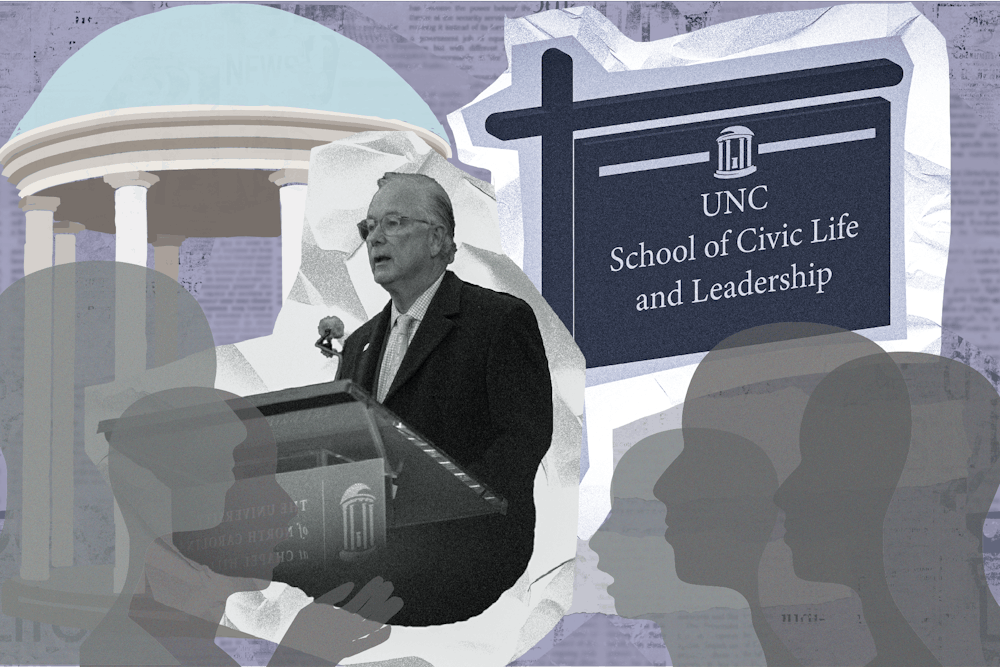Nearly a year after the UNC Board of Trustees passed a resolution to accelerate the development of a new School of Civic Life and Leadership — a move that many faculty members said they were not consulted about — development of the SCiLL is being led by a group of 9 inaugural faculty members with legislative funding.
The school was first announced during a Jan. 26 BOT meeting. Hours later, the Wall Street Journal published an editorial praising the Board's acceleration of the SCiLL as a step toward fighting "increasingly abstruse woke politics" within the University.
Since its conception, the SCiLL has been shrouded in debate about the role of political ideology in higher education.
Development of the SCiLL
UNC’s Program for Public Discourse was created in 2017 by Provost Chris Clemens to establish a “conservative center” on campus, according to emails obtained by The Daily Tar Heel.
Trustee David Boliek said he believes some conservative students on campus do not feel as comfortable as they should expressing their political views and that they "ought to feel confident" expressing their perspectives as conservatives.
The PPD program was largely based on the James Madison Program at Princeton University, Boliek also said.
Members of the Faculty Council voted to delay the PPD in 2019, expressing concerns over its development, but their request was denied. The program was integrated into the IDEAS in Action curriculum in the fall of 2022.
Boliek described the SCiLL as a “natural extension” of the PPD.
“Our vision for the [SCiLL] is that it will be a home for the study and practice of public discourse—essential tools for today’s students seeking to communicate effectively in an increasingly polarized society—and will provide a foundational grounding in what it means to be an engaged and informed citizen, the cornerstone of a strong democracy,” Jim White, dean of the College of Arts and Sciences, said in an email statement.
Sarah Treul Roberts, the SCiLL’s interim dean, said nine inaugural faculty members are currently working on developing a vision and curriculum for the school. She also said the faculty is planning a minor focused on civic life and leadership that will consist of five courses: two “gateway” courses and three electives.




